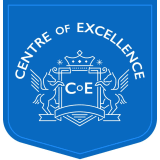This informal CPD article Ho'oponopono - The Hawaiian Practice That'll Help You Get On With Your Boss was provided by Centre of Excellence, recognised worldwide as a leading online training provider.
Ho'oponopono
Imagine a working environment in which you weren’t weighed down by workplace disagreements, conflicts and tensions. Some are lucky enough to work among supportive teams, cheered on by good bosses. Unfortunately, this isn’t always the case. One Gallup poll found that just 15% of the world's one billion full-time workers are engaged at work, and this dissatisfaction can be partly attributed to interpersonal professional tensions.
So, what if we were to tell you that you could harness the power of a practice that could help you manage conflicts at work, mindfully protecting yourself from those who may be draining your energy and enabling you to do what you do best!
Ho'oponopono - ‘to make it right with yourself and others'
It’s called Ho'oponopono - which loosely translates as ‘to make it right with yourself and others’ - and it’s a Hawaiian healing technique that can be applied to all areas of your life. While the origins of Ho'oponopono are complex and fascinating, its message is simple: responsibility, repentance, gratitude, and love.
Ho'oponopono teaches that negative feelings at work could be rooted in trauma from past jobs, fear of failure or guilt over professional performance. You simply might not feel a colleague is easy to work with or that they have become a transgressor. Maybe you’ve become embroiled in a blame game. Whatever the cause, unforgiveness and grudges can cause exhaustion, isolation, and distraction from your true goals.
Ho'oponopono teaches that there are three types of wrongdoing that are important to be able to identify before you can let them go:
- Hala: the missing path or erring by omission This is often unintentional wrongdoing caused by miscommunication, procrastination, or not working hard and being mindful of other people.
- Hewa: wrongdoing by excess This is sometimes thought of as ‘going overboard’ and, in the workplace, often manifests as taking over during conversations or an obsessive or demanding approach to perfectionism.
- Ino: hate in the mind This is an intentional wrong, designed to hurt, and can range from gossip to harsh criticism and judgement, and even acts of violence.
Hawaiians are experts in using forgiveness to solve problems through understanding. It’s not just about tolerating people but existing in harmony with them, especially in times when you feel you have been wronged. Ho'oponopono in the workplace does not mean you will never have negative feelings; simply that you will learn to let go of them for your own wellbeing. It is part of their entire belief system, Huna.
Here are the seven principles of Huna:
- Ike: the world is what you think it is
- Kala: there are no limits, everything is possible
- Makia: energy flows where attention goes
- Manawa: now is the moment of power
- Aloha: to love is to be happy
- Mana: all power comes from within
- Pono: effectiveness is the measure of truth, right and congruousness within ourselves
There are a number of different ways in which these principles can help us to achieve harmony in the workplace.
Mana teaches that no one can influence you without your consent or hurt you without your invitation; furthermore, to define yourself as a victim is to allow someone else to take ownership of your power. Ike can help you change your perception of the realities of your job. Kala says there are no limits to your ability to let hurt or anger go. Makia allows us to focus our attention on the actionable good in difficult situations or people we don’t like and allow positivity to flow towards the good. Pono represents the ultimate goal of ‘making things right’. In Ho'oponopono, pono appears twice to represent this within yourself and with others.
Forgiveness is something that can be taught
It is reassuring to know forgiveness is something that can be taught. In Western culture, it is often thought of as an apology, either accepted or rejected, thus creating one-sided guilt and repentance.
In Hawaii, they believe closure after wrongdoing can only be reached by saying: ‘E Kala Mai Ia'u’. It means ‘Please forgive me if I have done anything wrong’ and opens both parties up to a mutual connection and two-way communication. Through this practice, you can completely let go of hurt and upset in the workplace, while not forgetting them or absolving someone of responsibility for it.
Ho'oponopono is not easy but the benefits are great. The promised salary increase that never showed up? Forgiven but not forgotten. The competitive colleague who sabotaged your work? Forgiven but not forgotten. You can free yourself and allow yourself to move forward.
The next time you find yourself in conflict at work, try taking a moment for yourself and repeating these healing phrases for repentance, forgiveness, gratitude, and love:
- I’m sorry
- Please forgive me
- Thank you
- I love you
This is a very brief introduction to a deep and profound practice, and it is advisable to learn more on your journey to forgiveness and ultimately, happiness. We hope you find the process freeing and fruitful to a happy working life without anger, frustration, conflict or negativity.
We hope this article was helpful. For more information from Centre of Excellence, please visit their CPD Member Directory page. Alternatively please visit the CPD Industry Hubs for more CPD articles, courses and events relevant to your Continuing Professional Development requirements.













